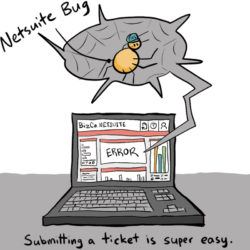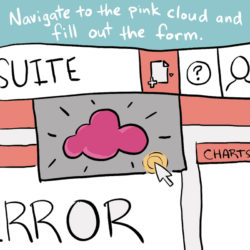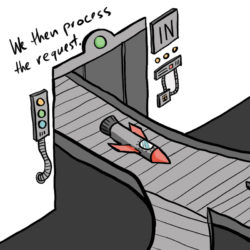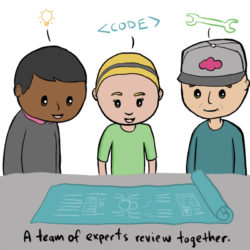In this post, we will outline the different types of NetSuite certification and what you need to do to achieve them.
NetSuite is a comprehensive cloud-based business software suite that offers a complete range of enterprise Resource Planning (ERP) applications. Earning a NetSuite certification can help advance your career by demonstrating your proficiency in using NetSuite software.
NetSuite Certification: The Path to Career Success
NetSuite Certification: The Path to Career Success. As the world’s leading provider of cloud-based business software, NetSuite helps companies operate more effectively and efficiently. A NetSuite certification is the best way to demonstrate your knowledge of NetSuite and your commitment to your career. The NetSuite offers six disciplines of certification:
NetSuite Certified SuiteFoundation
The NetSuite SuiteFoundation certification is a great way to show that you are knowledgeable about the NetSuite product. The certification will help you stand out from other professionals who may not have the same level of knowledge or understanding of the product.
In addition, the certification will also help you to better understand the core concepts and features of the product. As a result, the certification will help you to be more successful in your career.
The NetSuite Certified SuiteFoundation Exam is designed to test your knowledge of the various aspects of NetSuite. To pass the exam, you’ll need to have a thorough understanding of the following topics: Setup and Administration, the NetSuite User Interface, Standard NS Process Flows, SuiteAnalytics, and Maintenance, Resources, and Data Security. This blog post will provide you with an overview of each topic so that you can study effectively for the exam.
Setup and Administration: This section of the exam will test your knowledge of setting up and administering a NetSuite account. You’ll need to be familiar with topics such as configuring company information, enabling features, and customizing forms.
NetSuite User Interface: In this section, you’ll be tested on your understanding of the NetSuite user interface. You’ll need to know how to navigate around NetSuite effectively, as well as how to set personal preferences at the user level.
Standard NS Process Flows: As its name suggests, this section covers standard NetSuite process flows. You’ll need to have a good understanding of how various processes work to answer questions correctly.
PREVIOUS POST – What is NetSuite SuitePeople HR?
SuiteAnalytics: The SuiteAnalytics section covers Saved Searches and CSV imports. You’ll need to know how to create and edit Saved Searches, as well as how to import data into NetSuite using a CSV file.
Maintenance, Resources, and Data Security: Finally, this section tests your knowledge of maintenance, resources, and data security in NetSuite. You’ll need to be familiar with topics such as creating and managing records, using SuiteAnswers, and setting data security policies.
NetSuite’s SuiteFoundation Certification Exam is a comprehensive exam that tests your knowledge of NetSuite’s products and features. To help you prepare for the exam, NetSuite recommends taking the following courses:
-
- ERP Fundamentals,
-
- NetSuite Administrator Fundamentals
-
- Sales Force Automation Fundamentals
-
- and SuiteAnalytics Financial Reports and Searches.
Each of these courses will allow you to learn about NetSuite’s products and features in more depth, and the exam preparation course will provide you with tips and tricks for taking the exam. With the proper preparation, you can feel confident that you’ll pass the SuiteFoundation Certification Exam and be well on your way to becoming a NetSuite-certified professional.
NetSuite Certified Administrator
The NetSuite Certified Administrator Exam is designed to test your knowledge of administering a NetSuite account. To pass the exam, you’ll need to have a thorough understanding of topics such as configuring company information, enabling features, and customizing forms. You’ll also need to be familiar with the NetSuite user interface and how to navigate around the system effectively.
The NetSuite Certified Administrator exam is a comprehensive assessment of an individual’s NetSuite knowledge and skills. The exam covers a wide range of topics, including :
-
- SuiteAnalytics
-
- SuiteBuilder
-
- The SuiteCloud platform
-
- Setup and administration,
-
- and data security.
To become a Certified Administrator, individuals must possess a deep understanding of how NetSuite works and demonstrate their ability to effectively use the system to solve real-world business problems.
RELATED POST – NetSuite Administrator: Why Do You Need One?
To become a NetSuite Administrator, there are a few recommended courses you should take including:
-
- NetSuite essentials,
-
- SuiteAnalytics: reports and searches
-
- SuiteAnalytics: advanced searches,
-
- SuiteFlow: workflow fundamentals,
-
- SuiteCloud: exploring the NetSuite platform.
These courses will give you the foundation you need to be successful in the role. You will learn how to set up and configure NetSuite, as well as how to create custom reports and searches.
In addition, you will gain an understanding of workflow fundamentals and how to build custom applications on the NetSuite platform. By taking these courses, you will be well on your way to becoming a NetSuite Administrator.
NetSuite Certified ERP Consultant
To become a NetSuite ERP Consultant, an individual must pass two exams. The first exam is the NetSuite SuiteFoundation Exam. This exam tests an individual’s knowledge of the basic concepts of NetSuite’s ERP system.
The second exam is the NetSuite Implementation Exam. This exam tests an individual’s ability to apply their knowledge of NetSuite’s ERP system to real-world scenarios.
To become certified, an individual must pass both exams. After becoming certified, an individual will be able to consult on NetSuite implementations and provide support for NetSuite users.
PREVIOUS POST – NetSuite Skill Improvement Remains Top Priority for OdeCloud Community
The NetSuite Certified ERP Consultant exam covers a variety of subject areas related to the NetSuite platform. The Exam covers topics such as
-
- ERP
-
- Analytics
-
- Dashboards
-
- OneWorld
-
- Data Security
-
- Data Strategy
The Exam is designed to test a candidate’s knowledge of the NetSuite platform and their ability to apply it to real-world situations. The Exam is not intended to be a comprehensive examination of all aspects of the NetSuite platform, but rather a way to assess a candidate’s understanding of the key concepts and their practical application.
Candidates who pass the Exam will be able to demonstrate their understanding of the NetSuite platform and how to use it to solve business problems.
Becoming a NetSuite ERP consultant requires a certain level of experience and expertise. Here are the courses NetSuite recommends to help you prepare for the NetSuite ERP Consultant Certification Exam.
ERP: Fundamentals: This course covers the basics of enterprise resource planning (ERP) systems and how they can help businesses streamline their operations. You’ll learn about the different types of ERP systems, their key components, and how they can be used to support various business processes.
Inventory Item Costing: This course covers the different methods used to calculate the cost of inventory items in NetSuite. You’ll learn about standard costing, actual costing, and moving average costing. You’ll also learn how to configure these methods in NetSuite and how to use them to generate accurate financial reports.
NetSuite-Administrator Fundamentals: This course covers the basics of NetSuite administration. You’ll learn about the different NetSuite modules, how to create and manage users, and how to configure security settings. You’ll also learn how to create custom fields and forms, and how to troubleshoot common issues.
NetSuite Certification: ERP Consultant Study Session: This course covers the topics covered in the NetSuite ERP Consultant Certification Exam. It includes a review of all exam objectives, as well as practice questions and answers.
NetSuite: Financial Management: This course covers the basics of financial management in NetSuite. You’ll learn about account setups, transaction entries, journal entries, bank reconciliation, and financial reporting. You’ll also learn how to configure these features in NetSuite and how to use them to support your business’s financial operations.
PREVIOUS POST – Developing a Workplace Atmosphere for Expert NetSuite Freelancers
SuiteAnalytics: Financial Reports and Searches: This course covers the basics of creating financial reports and searches in NetSuite’s SuiteAnalytics module. You’ll learn about the different types of reports available in SuiteAnalytics, as well as how to create custom reports and searches. You’ll also learn how to share reports with others and how to schedule report generation.
SuiteAnalytics: Advanced Searches: This course covers advanced features of SuiteAnalytics searches. You’ll learn how to create custom searches using Saved Searches, SQL Views, Search Joins, Search Filters, and Search Aggregates. You’ll also learn how to share searches with others and how to schedule search execution.
SuiteCloud: Exploring the NetSuite Platform: This course explores the capabilities of the NetSuite platform from a developer’s perspective. You’ll learn about the different types of applications that can be built on the platform, as well as the platform’s core features and functionality.
SuiteFlow: Workflow Fundamentals: This course covers the basics of workflow automation in NetSuite using SuiteFlow. You’ll learn about workflow states, transitions, triggers, actions, prisoners, alerts, approvals, assignments, tasks, record locking, field updates, email notifications, workflow history tracking, searching for workflows, and troubleshooting workflow issues. You will also learn how color coding can be used to visually represent workflow statuses in NetSuite lists and transaction records.
Using Accounts Receivable (AR): This course covers details about using NetSuite to manage accounts receivable (AR). You will learn about customer invoice records, credit memo records, payments, and applying cash receipts against invoices and credit memos.
NetSuite Certified SuiteCloud Developer
In today’s business world, it’s becoming more and more important to have a strong online presence. Companies are increasingly relying on SuiteCloud technologies to power their websites and applications, which is why the SuiteCloud Developer certification is so important.
This certification shows that you have the skills and knowledge necessary to build SuiteCloud-powered solutions that are reliable, scalable, and secure.
RELATED POST – NetSuite Consultancy Uses Crowdsourcing to Provide Best-in-Class Service
The SuiteCloud Developer certification consists of two examinations: the SuiteFoundation exam and the two-hour-long SuiteCloud Developer exam. The latter covers topics such as
-
- SuiteAnalytics
-
- SuiteFlow
-
- SuiteTalk
-
- SuiteBundler
-
- SuiteBuilder
-
- SuiteScript
-
- Design fundamentals
To be eligible for the certification, candidates must have between one and two years of experience working with SuiteCloud technologies, as well as two to three years of software development experience.
Furthermore, it’s beneficial to know JavaScript, SQL, SOAP, XML, JSON, and REST technologies.
The importance of this certification cannot be understated. With more and more companies relying on SuiteCloud technologies to power their websites and applications, the demand for certified developers is only going to increase.
If you want to stay ahead of the curve and position yourself for success in the future, pursuing the SuiteCloud Developer certification is a great place to start.
NetSuite Certified SuiteCloud Developer II
As a NetSuite developer, it’s important to stay up-to-date on the latest certification. That’s why, in August 2018, NetSuite introduced the SuiteCloud Developer II certification as a replacement for the original (now called SuiteCloud Developer I). The main reason for the upgrade was to replace the SuiteScript 1.0 section of the exam with SuiteScript 2.0 objectives, in addition to doing a general update of the exam’s content.
NetSuite SuiteCommerce Developer Certification
The SuiteCommerce Developer Certification is a globally recognized credential that demonstrates your expertise in developing and deploying NetSuite’s SuiteCommerce platform. The exam covers a range of topics, including SuiteCloud, APIs and services, SuiteCommerce advanced applications, account configuration and setup, and design fundamentals. In this blog post, we’ll give you a brief overview of each of these topics so you can start studying for the exam with confidence.
SuiteCloud: SuiteCloud is NetSuite’s development platform. It enables developers to extend NetSuite to create custom applications or integrate with third-party applications.
When developing a SuiteCloud application, the execution context is an important consideration. It can impact which records and features are available to the script and how certain functions behave. Understanding the webstore context, for example, is crucial for implementing commerce functionality.
In addition, it’s important to be familiar with bundle types and global libraries in SuiteScript Server Pages (SSP) applications, as well as how to use scriptable carts and touchpoints. By taking the SuiteCloud section, you will gain a strong understanding of these concepts and their role in building successful SuiteCloud applications.
APIs and services: To develop on the SuiteCloud platform, you need to be familiar with NetSuite’s APIs and services. The NetSuite SOAP web services API allows you to access data in NetSuite from external Applications. You can also use the RESTlets framework to develop custom RESTful web services that can be consumed by any third-party application.
PREVIOUS POST – High-Level NetSuite Training Available in OdeCloud NetSuite Community
SuiteCommerce advanced applications: SuiteCommerce Advanced is a robust ecommerce platform that provides everything you need to create a sophisticated online store, including a customizable shopping cart, product catalog, order management, and payment capabilities.
Account configuration and setup: Before you can start using NetSuite, you need to configure your account settings. This includes setting up your company information, preferences, and user accounts. You will also need to create custom records and fields to store your company’s data in NetSuite.
Design fundamentals: Creating custom applications on the SuiteCloud platform requires an understanding of basic design principles. This includes an understanding of how to use HTML, CSS, JavaScript, XML, and other web technologies to create pages that are both functional and visually appealing.
NetSuite Certified Financial User
Are you looking to increase your knowledge of NetSuite accounting and finance functionality? If so, the NetSuite Financial User course is a great place to start.
In this course, you’ll gain a foundational understanding of how to navigate around the NetSuite system, as well as learn about key topics such as subsidiaries, accounts payable and receivable, journal entries, and financial reports. Plus, at the end of the course, you’ll have the opportunity to take a proctored exam to earn your NetSuite Financial User certification.
RELATED POST – OdeCloud Community Fosters Meaningful Connections Among NetSuite Consultants
Curious to learn more? Read on for an overview of what you can expect from the NetSuite Financial User course. The NetSuite Financial User course is designed to provide students with a solid understanding of core NetSuite accounting and finance functionality.
The course topics include:
-
- Subsidiaries
-
- Classifications and chart of accounts
-
- Accounts payable
-
- Accounts receivable
-
- Billing schedules
-
- Banking and payment processing
-
- Journal entries
-
- Budgeting
-
- Expense allocations
-
- Financial reports and KPIs
-
- Period and year-end close
NetSuite Certified SuiteAnalytics User
As a NetSuite user, obtaining the Certified SuiteAnalytics User certification shows you can navigate and utilize all of the search, report, and dashboard functions in the system.
This certification proves you understand how to create and customize searches, build reports, and use dashboard components to effectively gather and analyze data. Employers and clients value this certification as it demonstrates a level of proficiency and efficiency in using NetSuite.
Earning this certification can open up new job opportunities or provide an edge over competitors in the market. If you have at least six months of experience using these tools in NetSuite, consider taking the Certified SuiteAnalytics User exam to boost your professional credentials.
This exam includes:
Reports and Searches
Creating Reports in NetSuite
You’ll learn how to create and customize reports in NetSuite. You’ll gain an understanding of the different types of reports available in NetSuite, and learn how to build reports using different data sources and formatting options.
Searching for Data in NetSuite
You’ll learn how to use the search features in NetSuite to find information quickly and easily. You’ll learn about the different search options available in NetSuite, and how to use keywords, filters, and other search criteria to find the data you need.
PREVIOUS POST – Salto: NetSuite Deployment & Change Management Made Easy (ft. Co-Founder and CTO, Gil Hoffer)
Building Dashboards in NetSuite
You’ll learn how to create and customize dashboards in NetSuite. You’ll learn about the different types of dashboards available in NetSuite, and learn how to use widgets and other components to create custom dashboards that meet your needs.
Analyzing Data in NetSuite
In this course, you’ll learn how to use the suite of tools available in NetSuite to effectively analyze data. You’ll learn about the different types of data analysis available in NetSuite, and how to use reports, searches, and dashboards to glean insights from your data.
Report Builder
The financial report builder interface can be used to efficiently generate custom financial reports for a company. It allows users to select specific data and time ranges to produce tailored results. In certain scenarios, the alternate data/ period range feature may come in handy, such as when comparing quarterly performances or analyzing specific events. However, for more complex report requirements, a custom search may be more effective in providing the necessary information.
Advanced Searches
Advanced searches can greatly improve the accuracy and efficiency of your transactions. One important thing to consider is mainline usage, as this impacts the results you will see in a search. It’s also important to understand which record to use as the basis for your search, to yield the desired result.
Features such as formatting can also enhance and organize your search results. And becoming familiar with SQL expressions, like CASE and DECODE, can help you determine the best approach for achieving your desired outcome.
Final Thoughts
Earning a NetSuite certification can be beneficial for your career by demonstrating your proficiency in using NetSuite software. If you are interested in pursuing certification, we recommend studying using the resources provided to ensure success on the exam.










